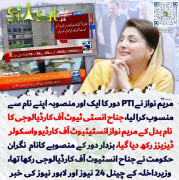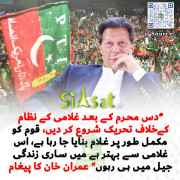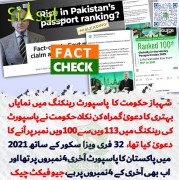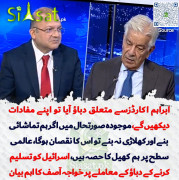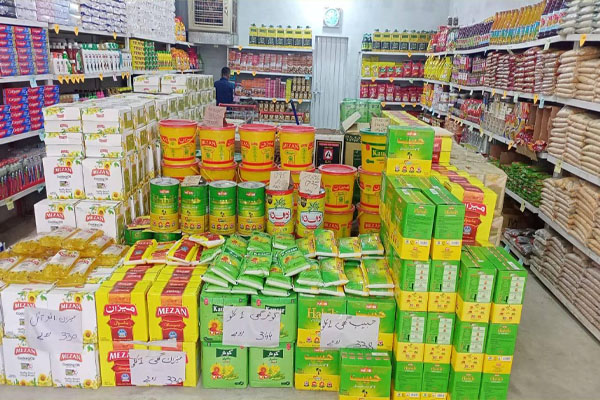M Ali Khan
Minister (2k+ posts)
http://dawn.com/news/1034788
RIYADH, Aug 7: Saudi Arabia has offered Russia economic incentives including a major arms deal and a pledge not to challenge Russian gas sales if Moscow scales back support for Syrian President Bashar al-Assad, Middle East sources and western diplomats said on Wednesday.
The proposed deal between two of the leading power brokers in Syrias devastating civil war was set out by Saudi intelligence chief Prince Bandar bin Sultan at a meeting with Russian President Vladimir Putin in Moscow last week, they said.
Russia has supported Assad with arms and diplomatic cover throughout the war and any change in Moscows stance would remove a major obstacle to action on Syria by the United Nations Security Council.
Syrian opposition sources close to Saudi Arabia said Prince Bandar offered to buy up to $15 billion of Russian weapons as well as ensuring that Gulf gas would not threaten Russias position as a main gas supplier to Europe.
In return, Saudi Arabia wanted Moscow to ease its strong support of Assad and agree not to block any future Security Council Resolution on Syria, they said.
A Gulf source confirmed that Prince Bandar offered to buy large quantities of arms from Russia, but that no cash amount was specified in the talks.
A Lebanese politician close to Saudi Arabia said the meeting between Bandar and Putin lasted four hours.Reuters
RIYADH, Aug 7: Saudi Arabia has offered Russia economic incentives including a major arms deal and a pledge not to challenge Russian gas sales if Moscow scales back support for Syrian President Bashar al-Assad, Middle East sources and western diplomats said on Wednesday.
The proposed deal between two of the leading power brokers in Syrias devastating civil war was set out by Saudi intelligence chief Prince Bandar bin Sultan at a meeting with Russian President Vladimir Putin in Moscow last week, they said.
Russia has supported Assad with arms and diplomatic cover throughout the war and any change in Moscows stance would remove a major obstacle to action on Syria by the United Nations Security Council.
Syrian opposition sources close to Saudi Arabia said Prince Bandar offered to buy up to $15 billion of Russian weapons as well as ensuring that Gulf gas would not threaten Russias position as a main gas supplier to Europe.
In return, Saudi Arabia wanted Moscow to ease its strong support of Assad and agree not to block any future Security Council Resolution on Syria, they said.
A Gulf source confirmed that Prince Bandar offered to buy large quantities of arms from Russia, but that no cash amount was specified in the talks.
A Lebanese politician close to Saudi Arabia said the meeting between Bandar and Putin lasted four hours.Reuters


